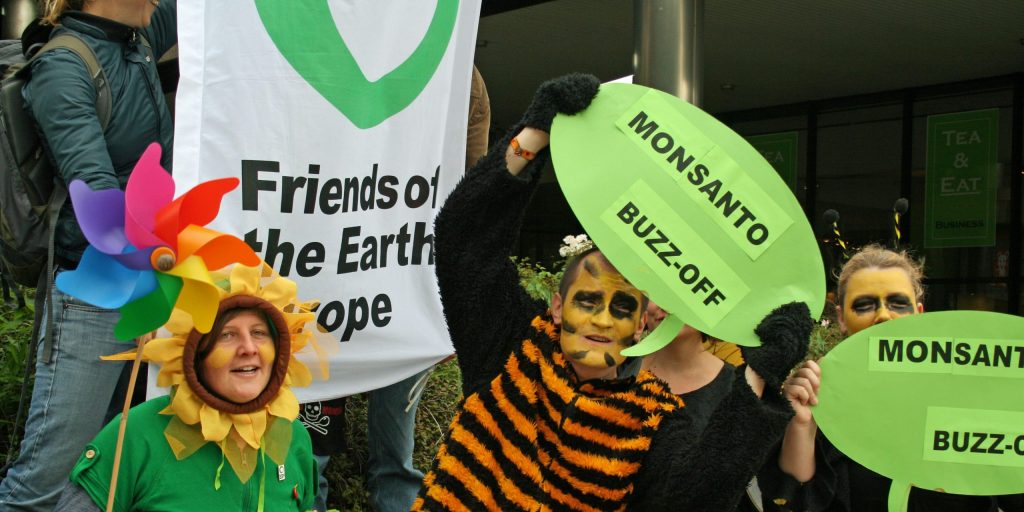After intense negotiations, the European Parliament and national governments this month found a compromise on new rights for governments to constrain or prohibit genetically modified (GM) crops within their borders. The proposal has enormous public support across Europe.
Friends of the Earth Europe has warned about the danger of the new rules being a ‘poisoned chalice‘ which could give unprecedented power for biotech companies to interfere in the legislative process concerning their own products. The group is urging ministers and parliamentarians to make sure countries have genuine rights to ban GM crops.
Mute Schimpf, food campaigner for Friends of the Earth Europe, says: “This compromise is a baby step towards banning GMOs in Europe, but it fails to allow governments to ban GM crops on environmental grounds – a major loophole. It is totally unacceptable that biotech companies could have a say on whether their own products are banned or not.”
The compromise will be voted on in January in the plenary of the European Parliament, followed by a ministers’ vote in early 2015.
Why do governments needs new rights to ban GM crops?
The cultivation of GM crops is controversial, with eight EU countries banning their cultivation and the only crop permitted, Monsanto’s GM maize, restricted to some areas of Spain and four other countries.
The existing national bans have been challenged by the European Commission as well as the biotech industry, resulting in many national environment ministers supporting proposals to improve their legal rights to ban GM crops. In addition, a ruling of the European Court of Justice strongly limited the existing regulatory tools for governments.
Compromise outcome
Ministers and the European Parliament have now agreed a compromise, with a technical consensus on the most controversial issues:
- Role of biotech companies –Biotech companies have the first say in the decision-making process, if a government chooses this option, but governments can also act to ban GM crops without the involvement of biotech companies. Friends of the Earth Europe has criticised the notion that sovereign states, acting as risk managers, should be obliged to first ask permission from companies that profit from GM cultivation before restricting the cultivation of GM crops in their territory.
- Which crops can be banned – ministers agreed that governments should have the right to ban groups of GM crops – defined by crop or by characteristics, for example all GM maize plants or all herbicide-tolerant GM crops. This is a big step forward in the battle to defend GM-free fields.
- When can GM crops be banned? – either during the EU-wide authorisation process or at any later stage governments can initiate a ban for the whole duration of its authorisation – up to ten years. A government can lift an existing ban without any notice.
- Environmental impacts – it is uncertain whether countries would be able to ban crops due to negative environmental impacts at the regional level. Existing EU policy only assesses potential environmental harm at the level of the EU bloc.
The final wording says “distinct and complementary to EFSA risk assessment”. This means that either the potential environmental harm should be different to issues assessed by the European Food Safety Authority (EFSA) or it can supplement the scientific EU-wide consideration by regional specific conditions.
The story so far
The new directive was proposed with the aim of making it easier for GMO-critical governments to ban GM crops in their territories. Since the proposal was released, Friends of the Earth Europe has been calling for it to be strengthened.
The European Parliament agreed in its position in July 2011 and November 2014, supporting stronger legal grounds for bans on GM crops based on environmental checks without any formal role for biotech companies.
Environment ministers, however, came to a different conclusion earlier this year, supporting weaker legal rules for countries who oppose GM crops to ban them, and showing an extreme bias towards companies who profit from GM technology.







